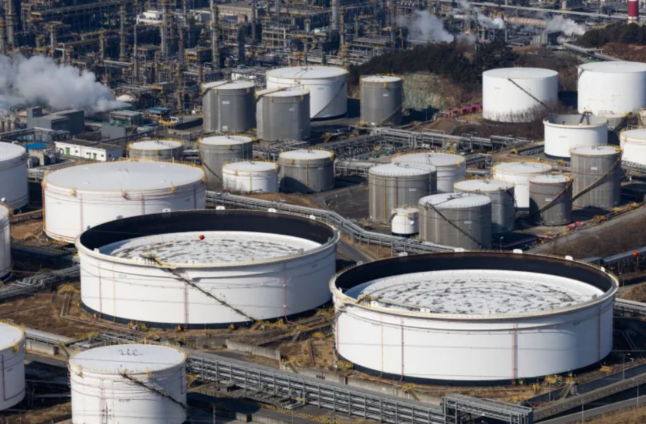The World Bank in their October 2023 Commodity Market Outlook has outlined the potential consequences of an escalating Middle East ( Israel-Hamas) conflict on oil prices.
The World Bank has identified the possibility of oil prices surging beyond $150 per barrel, a scenario that could lead to significant increases in both energy and food prices, reminiscent of the price spikes witnessed a year earlier due to the Russian invasion of Ukraine.
Currently, the World Bank expects global oil prices to average $90 a barrel in the fourth quarter and fall to an average of $81 in 2024 as slowing growth eases demand. However, the World Bank has issued a warning that this outlook may swiftly reverse, leading to a situation comparable to the oil crisis of the 1970s, potentially pushing oil prices to a range between $140 and $157 per barrel.
Indermit Gill, the Chief Economist at the World Bank, highlighted that the current Middle East conflict follows the significant disruption to commodity markets caused by Russia's war with Ukraine, an event still exerting a lingering impact on the global economy. Gill stressed the need for vigilance among policymakers as the prospect of a "dual energy shock," affecting both oil and gas supplies, has not been witnessed for decades.
Gas Price Surge in Europe and Oil Market Resilience
Recent concerns about pipeline disruptions near the Gaza Strip have caused European gas prices to surge. Nevertheless, oil markets have largely remained resilient to the conflict's impact, with benchmark Brent prices declining more than 1% to roughly $89 per barrel.
Should the Middle East crisis not escalate further, the current forecasts predict wholesale prices falling to $81 per barrel. The World Bank noted that the global economy is now better equipped to withstand a supply shock compared to previous Middle East conflicts, although it is still recuperating from last year's energy price spikes.
The Link Between Higher Oil Prices and Global Food Insecurity
Elevated energy prices often lead to increased inflation, similar to what occurred following Russia's invasion of Ukraine. This, in turn, affects other commodities. Ayhan Kose, the Deputy Chief Economist at the World Bank, emphasized that sustained high oil prices are inevitably linked to higher food prices, with a substantial impact on many developing countries. By the end of 2022, over 700 million people, nearly a tenth of the global population, were grappling with undernourishment.
The World Bank expressed concern that an escalation of the ongoing conflict could exacerbate food insecurity not only within the Middle East region but also globally.
Various Scenarios and Their Potential Outcomes
The World Bank's report outlines three risk scenarios, drawing from historical episodes involving regional conflicts since the 1970s, each with increasing severity and associated consequences:
1. Small Disruption Scenario: Comparable to the reduction in oil output observed during the Libyan civil war in 2011 (approximately 500,000 to 2 million barrels per day), this scenario could result in oil prices ranging from $93 to $102 per barrel in the fourth quarter.
2. Medium Disruption Scenario: In a scenario equivalent to the Iraq war in 2003, where global oil supplies are reduced by 3 million to 5 million barrels per day, oil prices could surge to between $109 and $121 per barrel.
3. Large Disruption Scenario: The most severe scenario, approximating the impact of the 1973 Arab oil embargo, would involve a reduction in the global oil supply by 6 million to 8 million barrels per day, leading to initial price spikes in the range of $140 to $157 per barrel, which could be a substantial increase of up to 75%.
China's Robust Oil Demand and Russia's Stable Production
Notably, the report mentions that China's oil demand has remained surprisingly robust, with a 12% increase in the first nine months of 2023 compared to the same period in 2022, despite challenges in the country's real estate sector. It also notes that oil production and exports from Russia have been relatively stable despite Western-imposed embargoes resulting from Moscow's invasion of Ukraine.
Recommendations and Cautions
In the event of an escalation of the Israel-Hamas conflict, the World Bank recommends that policymakers in developing countries take measures to manage the potential increase in headline inflation. It also advises against trade restrictions such as export bans on food and fertilizer, as these measures can often intensify price volatility and heighten food insecurity.
Latest Stories
-
Election 2024: Care Ghana warns EC of recruiting political actors as Returning Officers
3 mins -
Mohammed Kudus gets 5th Premier League assist as West Ham hold Liverpool
5 mins -
Religious support source of my success – Asantehene
10 mins -
Sierra Leone energy minister resigns over electricity crisis, as power returns to capital
19 mins -
EC accuses Bright Simons, IMANI Africa of peddling falsehood
48 mins -
GRA/SML contract: Akufo-Addo has whitewashed the KPMG report – Inusah Fuseini
50 mins -
USM Alger receive warm welcome at Oujda Airport ahead of game against RS Berkane
2 hours -
2023/24 Ghana Hockey League to kick-off this weekend
2 hours -
All payments received from our contract with GRA are performance-based, says SML
2 hours -
Marrakech 2024: Ghana’s Zinabu Issah wins gold in women’s discus throw
2 hours -
Our contract with GRA followed due process; ignore contrary reports – SML
2 hours -
SML is just Agyapa in suit and tie – Bright Simons
3 hours -
Domelevo condemns selection of KPMG to audit GRA/SML contract as illegal and unprofessional
3 hours -
SML/GRA contract: OSP should have released its report by now – Inusah Fuseini
4 hours -
KPMG report exonerates us – SML
4 hours

